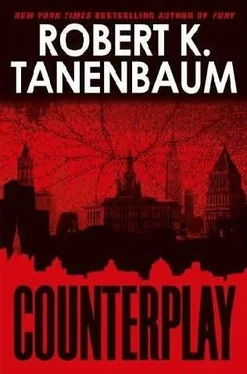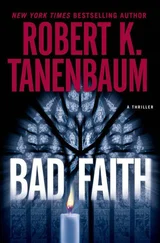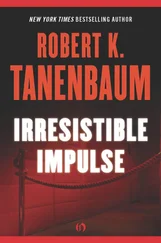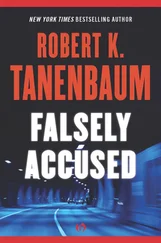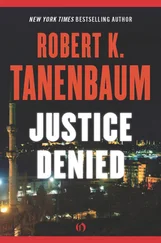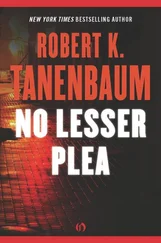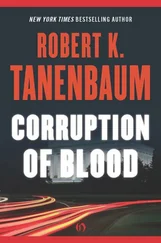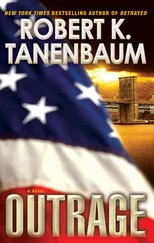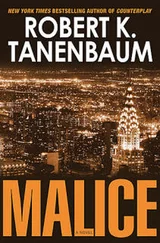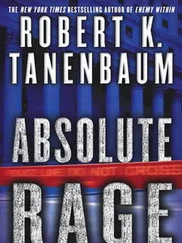Robert Tanenbaum - Counterplay
Здесь есть возможность читать онлайн «Robert Tanenbaum - Counterplay» весь текст электронной книги совершенно бесплатно (целиком полную версию без сокращений). В некоторых случаях можно слушать аудио, скачать через торрент в формате fb2 и присутствует краткое содержание. Жанр: Криминальный детектив, на английском языке. Описание произведения, (предисловие) а так же отзывы посетителей доступны на портале библиотеки ЛибКат.
- Название:Counterplay
- Автор:
- Жанр:
- Год:неизвестен
- ISBN:нет данных
- Рейтинг книги:4 / 5. Голосов: 1
-
Избранное:Добавить в избранное
- Отзывы:
-
Ваша оценка:
- 80
- 1
- 2
- 3
- 4
- 5
Counterplay: краткое содержание, описание и аннотация
Предлагаем к чтению аннотацию, описание, краткое содержание или предисловие (зависит от того, что написал сам автор книги «Counterplay»). Если вы не нашли необходимую информацию о книге — напишите в комментариях, мы постараемся отыскать её.
Counterplay — читать онлайн бесплатно полную книгу (весь текст) целиком
Ниже представлен текст книги, разбитый по страницам. Система сохранения места последней прочитанной страницы, позволяет с удобством читать онлайн бесплатно книгу «Counterplay», без необходимости каждый раз заново искать на чём Вы остановились. Поставьте закладку, и сможете в любой момент перейти на страницу, на которой закончили чтение.
Интервал:
Закладка:
Karp glanced at a photograph Guma had left on the prosecution table next to his yellow legal pad. In it, Teresa Stavros and her son were playing in the surf at Fire Island. Teresa looked beautiful in a loose sweater with her hair pulled back, but it was the adoring smile of the boy as he looked up at her that caught the eye. Now, that’s love, Karp thought. He was suddenly reminded of Marlene and his own sons, and his heart went out to the young man on the stand.
At an earlier motions hearing, Guma had to fight for the right to show photographs of Teresa Stavros. The defense attorneys had, of course, wailed and gnashed their teeth that photographs were prejudicial and meant to sway jurors with emotion rather than evidence dealing with the actual crime their client was accused of committing. So Lussman had compromised; Guma was allowed to pick a single photograph, and he’d chosen the one on the beach, which he now showed the jurors as a slide on a projection screen.
Guma had prepared Zachary for the photo presentation. But it was immediately clear that Zachary had become overwhelmed while sitting in a courtroom full of people. Notwithstanding the witness preparation, when shown the photo in the antiseptic, staid courtroom setting, Zachary was emotionally impacted.
“Is this a photograph of you and your mother?” Guma asked.
Zachary nodded and reached for a glass of water.
“You’ll have to answer into the microphone,” Judge Lussman said, adding, not unkindly, “my court reporter doesn’t know how to write a gesture.”
Zachary tried to speak but couldn’t clear his throat. He took a drink of water.
Come on, kid, Karp thought. You can do this.
“Yes, that’s my mother and me,” Zachary replied, staring at the photo.
Zachary then lifted his head, glanced over at the jury, and then directly at Guma. The witness prep, perhaps, was starting to kick in.
It was like the first warm breath of spring after a cold winter. Relieved, Karp imagined that he could hear a sigh from the other people in the courtroom, except the defense of course.
Zachary settled into the witness chair and let Guma take him through his testimony. “What’s your earliest memory, Mr. Stavros?”
“The earliest I can remember is lying in my mom’s arms, looking up at her face,” he replied. “I can still see her eyes-green-and feel this silky blue dress or nightshirt she used to wear.”
Karp looked over at Emil Stavros, who was doing a passable imitation of a man hurt to see his son on the witness stand. A man who’d lost the woman he loved, and now also his son.
Guma continued. “Do you remember a night when you saw and heard your mother and father arguing?”
Zachary nodded but quickly added, “Yes, I remember a night when I saw and heard my mother and father arguing.”
“What do you remember about that night?”
“Objection. Your Honor knows what problems I have with this witness’s so-called memories, and I want to make a record of it,” Anderson said from his seat.
“So noted, Mr. Anderson, and overruled,” Lussman replied automatically, then said to Zachary, “You may continue.” The defense objections to the use of Zachary Stavros’s repressed memories had already been taken up in the Daubert hearing with the testimony of forensic psychologists. At that time, Lussman ruled that evidence was sufficiently trustworthy to be weighed by the jury. It would, he said, be up to the defense to cross-examine and counter with their own expert witnesses regarding the reliability of repressed memories. Anderson was just making a record for future appeals and, in the process, casting aspersions on the witness’s testimony, hoping a juror or two might see it his way.
Guma stood by the jury rail, which was an extension of the jury box area directly in front of the jurors. Generally, lawyers placed their notes on the rail during opening and closing arguments and while questioning a witness.
Guma gave Zachary a slight nod to let him know that it was all right to continue. Zachary looked back to the jurors. “I remember having gotten out of bed to get a drink of water when I heard them fighting…. I remember my father slapping my mother-”
“Objection,” Anderson said, shaking his head indignantly.
“Mr. Anderson, the record will reflect your continued objection to this witness’s testimony,” Lussman said. “No need to further interrupt. Please continue.”
“I remember him putting his hands around her throat and…” Zachary swallowed hard but couldn’t quite get the next words out. He reached for the glass of water and knocked it over. “Oh damn,” he said and started to cry. “I’m sorry…sorry.”
“That’s all right,” Guma said. “Take a moment to compose yourself.” When the young man had wiped his eyes and nose, Guma asked, “Ready?”
Zachary nodded his head. “Sorry, yes, I can go on.” He straightened his shoulders, shot a look at his father, and then back to Guma. “My father grabbed my mother by her throat and started to shake her. I remember how angry and mad he was…his face was red and his eyes looked…crazy. He was very loud, and I was very frightened.”
“What happened next?”
“He had her backed up against the wall that led to the patio. She was pulling at his hands.” As he described the scene, Zachary’s hands went up to his neck as if trying to pry invisible hands away. He said something so quietly that the court reporter had to ask him to repeat it. “It seemed like a long time, but she went limp, and he let her fall to the ground.”
“What did he do next?”
“I don’t know,” Zachary replied.
“Just tell us what you recall, please,” Guma asked, though they’d been over the testimony many times before.
“I didn’t see…I don’t remember seeing anything more. The next thing I remember is lying in my bed with my sheet pulled up over my head. I was afraid my father would come for me next.”
Out of the corner of his eye, Karp saw Emil Stavros shake his head and then cover his face with his hand. A Tony Award-winning performance, he thought.
“Is there anything else you can recall from that night?”
Zachary shook his head and quickly added, “At some point I heard two ‘pops’ and later I heard the sound of digging.”
“Digging?”
“Yes, digging…from the backyard. My room was above the yard.”
“Did you get up and go to the window to see who might be digging?”
“No.”
“Why not?”
“I thought my dad might get mad at me if I got out of bed.”
Guma now waded carefully into the area the defense was sure to attack. “Now, are these memories you’ve had since you were a small child?”
“Well, in a way, but I had repressed them.”
“Repressed? How do you mean?”
“Well, as I understand it, sometimes people repress memories of a traumatic event-things that are too scary or bad-especially if they were children when it happened. You lock them away in a safe place in your mind where they can’t hurt you, at least that’s what Dr. Craig says.”
“Who is Dr. Craig?”
“Dr. Craig is my psychologist. I was diagnosed as bipolar-some people call it manic-depressive-to the point where I was cutting myself with razor blades. Some people call that ‘self-mutilation,’ but really it’s more self-injury. It’s almost like releasing the steam from a pressure cooker. I had pretty low self-esteem, hated myself actually…I’d been told most of my life that my mother left me-”
“Yes, we’ll get to that in a moment,” Guma said. “Did your father suggest that you go to Dr. Craig?”
“Well, he tried sending me to a lot of different people. He didn’t want to deal with me. But I think a friend of his recommended that I go see Dr. Craig.
Читать дальшеИнтервал:
Закладка:
Похожие книги на «Counterplay»
Представляем Вашему вниманию похожие книги на «Counterplay» списком для выбора. Мы отобрали схожую по названию и смыслу литературу в надежде предоставить читателям больше вариантов отыскать новые, интересные, ещё непрочитанные произведения.
Обсуждение, отзывы о книге «Counterplay» и просто собственные мнения читателей. Оставьте ваши комментарии, напишите, что Вы думаете о произведении, его смысле или главных героях. Укажите что конкретно понравилось, а что нет, и почему Вы так считаете.
